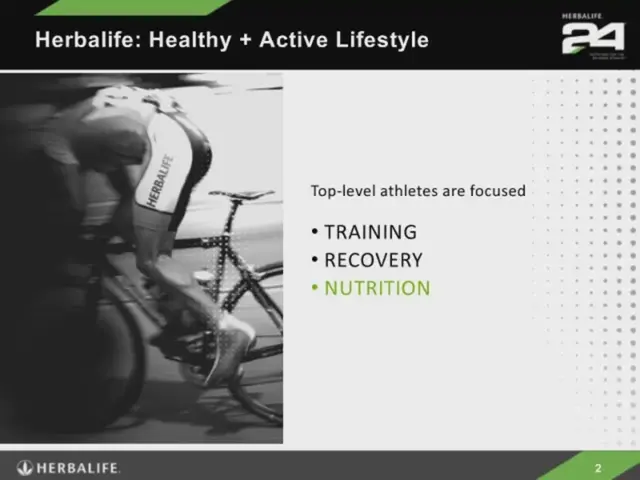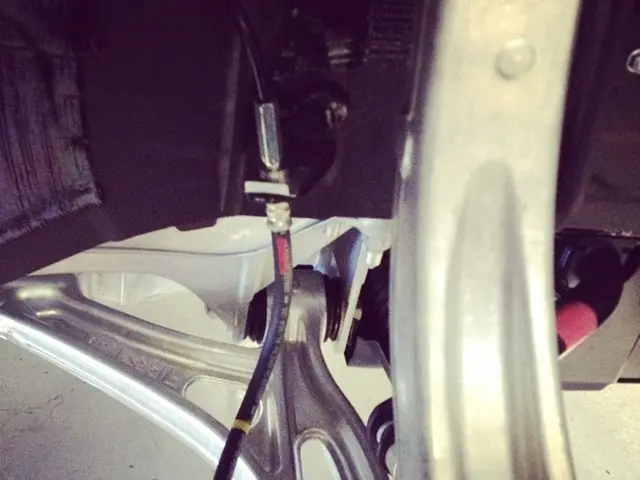Rethink Your Sustainability Strategy: Delay in CSRD Implementation Blurs the lines for German Businesses - Voluntary Disclosure Keeps Stakes High
By: Sabine Wadewitz, Frankfurt
Discarding ESG reports is unwise; they should remain accessible for thorough examination and analysis.
The anticipated implementation of the European Sustainability Reporting Directive (CSRD) in Germany faces a potential setback, with delays looming due to the collapse of the traffic light coalition. Nevertheless, businesses should stay committed to their Environmental, Social, Governance (ESG) reporting initiatives, as pressure from stakeholders continues to mount.
The demise of the traffic light coalition has left the corporate world in a state of uncertainty about the future of sustainability reporting regulations. Initially scheduled for implementation according to EU guidelines by July 6, 2024, the Corporate Sustainability Reporting Directive (CSRD) has been slow to take shape. A government draft was presented in Berlin at the end of July, and a public hearing was held later in October in the Bundestag's legal committee. However, the proposed legislative adoption by the Bundestag on November 8 was scrapped following the coalition's dissolution two days earlier.
The fluid situation surrounding CSRD implementation has left German firms navigating murky waters, eager for more clarity about their commitment to ESG reporting. To stay ahead of the curve, timely disclosure is crucial, and adhering to voluntary reporting standards could prove invaluable during this period of uncertainty.
In light of the present political landscape, key developments in CSRD transposition and the potential impact on German businesses are worth examining:
- CSRD Transposition: EU member states must transpose the CSRD into national legislation by June 2024 to ensure companies report on their sustainability impacts. However, the actual timeline for implementation may experience adjustments, particularly given recent EU policy changes. The Omnibus Proposal, which includes a "stop the clock" directive, was adopted by the European Council on April 14, 2025, postponing certain reporting deadlines for two years for certain entities. Germany, like other EU member states, is expected to align its national law with these changes, with an adoption anticipated in spring or summer 2025 at the earliest[2][4].
- German Coalition Agreement: A new coalition agreement between CDU/CSU and SPD was signed on April 9, 2025, highlighting significant shifts in sustainability policy. The agreement implies the possible abolition and replacement of the German Supply Chain Due Diligence Act (LkSG) with the national transposition law for the EU Corporate Sustainability Due Diligence Directive (CSDDD). Although the LkSG won't be immediately repealed, companies must continue compliance efforts until the CSDDD implementation is more transparent[5].
- Implementation Timeline: Each EU member state coordinates CSRD implementation timelines, with specifics prone to variation based on local legislative processes. The influence of the recent "stop the clock" directive may shape how quickly Germany implements the full scope of CSRD requirements.
In summary, even as Germany aligns its sustainability legislation with EU directives, key details about CSRD implementation—such as precise timelines and regulatory specifics—remain in flux due to ongoing policy adjustments within both the German domestic political sphere and the EU. To maintain a competitive edge during this uncertain phase, businesses would be wise to keep abreast of voluntary ESG reporting guidelines and adapt as needed. After all, transparency and accountability could be the key to weathering any storm.
- The proposed Environmental Sustainability Reporting Directive (CSRD) in Germany, initially expected by July 6, 2024, is experiencing a delay due to the collapse of the traffic light coalition, leading to uncertainty for German businesses regarding regulation.
- With the demise of the traffic light coalition, the Corporate Sustainability Reporting Directive (CSRD) has been slow to take shape, and the situation leaves firms navigating murky waters, emphasizing the importance of voluntary disclosure to stay ahead in Environmental, Social, Governance (ESG) reporting.
- Sabine Wadewitz suggests that, in this period of uncertainty, timely disclosure of sustainability impacts according to voluntary reporting standards could be invaluable for businesses seeking to maintain a competitive edge in the climate-change and environmental-science arena.
- Theaborate CSRD transposition process requires EU member states to transpose the directive into national legislation by June 2024, with adjustments possible given recent EU policy changes; a new coalition agreement between CDU/CSU and SPD could see the possible abolition and replacement of the German Supply Chain Due Diligence Act (LkSG) with the national transposition law for the EU Corporate Sustainability Due Diligence Directive (CSDDD).
- While businesses in Germany continue compliance efforts until the CSDDD implementation is more transparent, they would be savvy to keep abreast of financial and business implications associated with the implementation of the CSRD, as transparency and accountability could be the key to weathering the potential storm.





